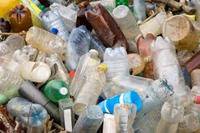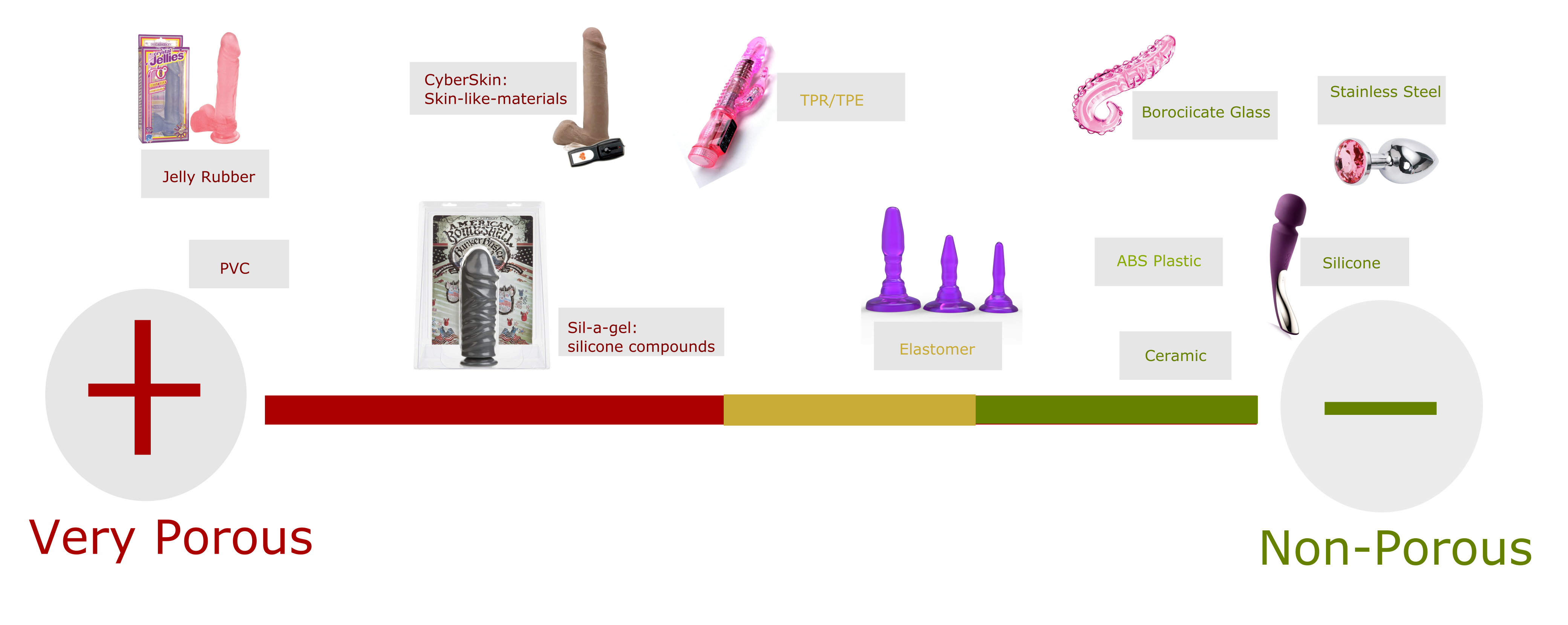QuantumHusky
Zooville Settler
Polyvinyl chloride is otherwise known as PVC is a common material used to make sex toys, including those labeled simply as “jelly rubber.” PVC is known to leach endocrine-disrupting compounds, including phthalates. On the surface, PVC isn’t dangerous. However, it’s a really hard material. In order to make toys more soft and flexible for us to play with and enjoy, manufacturers add phthalates, which are a group of toxic chemicals. Additionally, PVC contains chlorine. As the toys are used the ones made of PVC, chlorine is inadvertently released over time. Trimethyltin Chloride is a substance used in the manufacture of plastics, particularly PVC. Trimethyltin chloride is considered a reproductive hazard and is linked to irreversible neurotoxicity outcomes in development, learning impairments, and more. In a study assessing health risks from various chemicals in sex toys, researchers determined that exposure to trimethyltin chloride through sex toys was a health risk for pregnant and breastfeeding mothers. They also determined there was a minor risk of neurological effects on adults.
So how is PVC harmful to your animal significant other? Phthalates an ingredient that is known to cause problems to the kidneys, liver, and reproductive systems. Dogs most easily absorb phthalates because they bite, chew, lick, and nose whatever they play with this can include the insertion of a sex toy. While a lot of these phthalates have been banned by the EU for use in children’s toys, are still present in cheap sex toys and general pet toys. In addition to Phthalatesanother compound is present Bisphenol-A (BPA) it is added to phthalates to stop them from breaking down, Bisphenol-A (BPA) comes with a list of harms all its own. Linked to forms of cancer and endocrine disruption, BPA is a controversial substance currently under review in a variety of circles. This also comes to the addition of lead. Long known as a neurotoxin that interferes with development and cognitive functions, lead is more of an issue in older products, but it is still used in some new imported, painted toys. Lastly, Alkyl-phenols This family of organic compounds are often used in conjunction with phthalates or PVC plastics. One member, the nonyphenols, is restricted by the European Union due to its persistence and toxicity.
So how do we vet proper sex products for use in animals and ourselves? Avoid anything with Polyvinyl Chloride (PVC), Trimethyltin Chloride, Phthalates, Toluene, and anything that has "flavor" or is scented. When possible, shop at reputable sources for sexual health products, especially when shopping for sex toys. Retailers that pride themselves on offering options that are body-safe are more likely to have already done some product vetting themselves before items hit the shelves. If a toy has a strong chemical smell, it is likely not silicone, as silicone typically has no odor. Labels listing a product as “phthalate-free” might not mean the product is any safer because the toy could contain other toxic substances. Don’t trust these claims and follow our tips above to look for safer materials instead (remember: medical-grade silicone or stainless steel, borosilicate glass, or polished natural stone). Manufacturers often label products as “for novelty use only” as a means to avoid taking responsibility for health impacts associated with the use of harmful sex toys – even though their design, packaging language, and place of sale highly suggest they are to be used internally for sexual health or pleasure. Instead, look for products labeled as specifically intended to be used internally.
If concerned then email the manufacturer and ask them what types of compounds they use. Remember your health and their health are both really important! So always question what is in the toys. Whether it be for sex or for chew!
So how is PVC harmful to your animal significant other? Phthalates an ingredient that is known to cause problems to the kidneys, liver, and reproductive systems. Dogs most easily absorb phthalates because they bite, chew, lick, and nose whatever they play with this can include the insertion of a sex toy. While a lot of these phthalates have been banned by the EU for use in children’s toys, are still present in cheap sex toys and general pet toys. In addition to Phthalatesanother compound is present Bisphenol-A (BPA) it is added to phthalates to stop them from breaking down, Bisphenol-A (BPA) comes with a list of harms all its own. Linked to forms of cancer and endocrine disruption, BPA is a controversial substance currently under review in a variety of circles. This also comes to the addition of lead. Long known as a neurotoxin that interferes with development and cognitive functions, lead is more of an issue in older products, but it is still used in some new imported, painted toys. Lastly, Alkyl-phenols This family of organic compounds are often used in conjunction with phthalates or PVC plastics. One member, the nonyphenols, is restricted by the European Union due to its persistence and toxicity.
So how do we vet proper sex products for use in animals and ourselves? Avoid anything with Polyvinyl Chloride (PVC), Trimethyltin Chloride, Phthalates, Toluene, and anything that has "flavor" or is scented. When possible, shop at reputable sources for sexual health products, especially when shopping for sex toys. Retailers that pride themselves on offering options that are body-safe are more likely to have already done some product vetting themselves before items hit the shelves. If a toy has a strong chemical smell, it is likely not silicone, as silicone typically has no odor. Labels listing a product as “phthalate-free” might not mean the product is any safer because the toy could contain other toxic substances. Don’t trust these claims and follow our tips above to look for safer materials instead (remember: medical-grade silicone or stainless steel, borosilicate glass, or polished natural stone). Manufacturers often label products as “for novelty use only” as a means to avoid taking responsibility for health impacts associated with the use of harmful sex toys – even though their design, packaging language, and place of sale highly suggest they are to be used internally for sexual health or pleasure. Instead, look for products labeled as specifically intended to be used internally.
If concerned then email the manufacturer and ask them what types of compounds they use. Remember your health and their health are both really important! So always question what is in the toys. Whether it be for sex or for chew!








